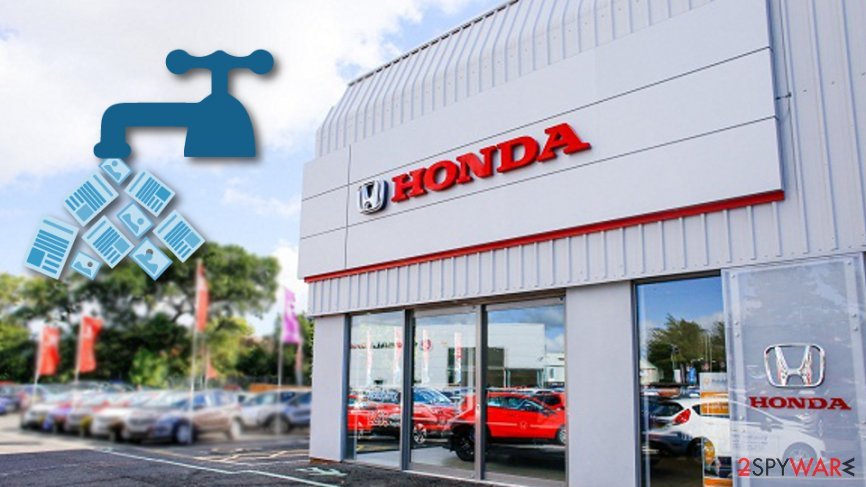Honda Motor Company, Ltd. is a global leader in the automotive and motorcycle industries, renowned for its commitment to innovation, engineering excellence, and sustainability. Founded in 1948 by Soichiro Honda and Takeo Fujisawa, the company has grown from a small motorcycle manufacturer to a diversified multinational corporation with a presence in over 150 countries. This article explores the history, product offerings, technological advancements, and future prospects of Honda, highlighting its pivotal role in shaping the automotive industry.
A Brief History of Honda Motor Company
Honda began its journey as a manufacturer of motorized bicycles using surplus engines from World War II. The company quickly gained a reputation for quality and innovation, and by 1959, it had become the largest motorcycle manufacturer in the world. In 1963, Honda entered the automotive market with the T360 mini-truck and the S500 sports car, marking the beginning of its expansion into a full-fledged automobile manufacturer.
Product Offerings
Honda’s product portfolio spans a wide range of vehicles and machinery, catering to various consumer needs and preferences. The company’s offerings can be categorized into three main areas: automobiles, motorcycles, and power products.
1. Automobiles:
- Sedans and Hatchbacks: Honda is known for its reliable and fuel-efficient sedans and hatchbacks, including the Civic, Accord, and Fit. These models have consistently ranked among the best-selling vehicles worldwide, praised for their performance, safety, and value.
- SUVs and Crossovers: Honda’s lineup of SUVs and crossovers, such as the CR-V, HR-V, and Pilot, offers versatility, comfort, and advanced safety features. These vehicles cater to the growing demand for spacious and capable family-oriented vehicles.
- Electric and Hybrid Vehicles: Honda is at the forefront of the shift towards sustainable mobility with its range of electric and hybrid vehicles. Models like the Clarity series, Insight, and Accord Hybrid showcase the company’s commitment to reducing carbon emissions and promoting green technologies.
2. Motorcycles:
- Commuter Bikes: Honda’s commuter motorcycles, including the popular CB and CBR series, are designed for everyday use, offering reliability, fuel efficiency, and affordability. These bikes are particularly popular in developing countries, where they serve as a primary mode of transportation.
- Sports Bikes: Honda’s sports bikes, such as the CBR1000RR and the legendary Gold Wing, are renowned for their performance, engineering, and innovation. These motorcycles are favored by enthusiasts and professional riders alike.
- Off-Road and Adventure Bikes: Models like the CRF series cater to off-road and adventure enthusiasts, providing rugged performance and durability for challenging terrains.
3. Power Products:
- Engines and Generators: Honda produces a wide range of engines and generators known for their reliability and efficiency. These products are used in various applications, from industrial machinery to portable generators for home use.
- Lawn and Garden Equipment: Honda’s lawn mowers, tillers, and other garden equipment are popular for their ease of use, durability, and low emissions, making them a favorite among homeowners and professionals.
Technological Advancements
Honda has a long history of pioneering technological advancements that have shaped the automotive and motorcycle industries. Some of the key innovations include:
1. VTEC Technology:
- Honda’s Variable Valve Timing and Lift Electronic Control (VTEC) technology, introduced in the late 1980s, revolutionized engine performance by optimizing valve timing and lift for different engine speeds. This technology improves fuel efficiency and performance, making it a staple in many Honda engines.
2. Advanced Safety Features:
- Honda has been a leader in developing advanced safety features, including the Honda Sensing suite of driver-assist technologies. This system includes features like adaptive cruise control, collision mitigation braking, and lane-keeping assist, enhancing driver safety and reducing the risk of accidents.
3. Hydrogen Fuel Cell Technology:
- Honda has been a pioneer in hydrogen fuel cell technology with its Clarity Fuel Cell vehicle. This technology uses hydrogen to generate electricity, producing only water vapor as a byproduct, offering a zero-emission alternative to traditional internal combustion engines.
4. Robotics and AI:
- Honda’s commitment to innovation extends beyond vehicles to robotics and artificial intelligence. The company developed ASIMO, a humanoid robot capable of complex tasks and interactions, showcasing Honda’s expertise in robotics and AI.
Commitment to Sustainability
Honda is dedicated to creating a sustainable future through its products and operations. The company has set ambitious targets to reduce its environmental impact, including achieving carbon neutrality for all products and corporate activities by 2050. Key initiatives include:
1. Electrification:
- Honda is accelerating its electrification efforts, with plans to introduce more electric and hybrid vehicles in the coming years. The company aims to electrify two-thirds of its global automobile sales by 2030, reducing reliance on fossil fuels and lowering carbon emissions.
2. Renewable Energy:
- Honda is investing in renewable energy sources, such as solar and wind power, to power its manufacturing facilities and reduce its carbon footprint. The company is also exploring ways to integrate renewable energy into its products, such as solar-powered vehicles and energy storage solutions.
3. Sustainable Materials:
- Honda is committed to using sustainable materials in its products, including recycled and bio-based materials. The company is also focused on reducing waste and improving resource efficiency in its manufacturing processes.
Future Prospects
Honda’s future prospects are bright, driven by its commitment to innovation, sustainability, and customer satisfaction. The company is well-positioned to navigate the evolving automotive landscape, with key focus areas including:
1. Autonomous Driving:
- Honda is investing in autonomous driving technologies, with plans to introduce Level 3 autonomous vehicles by 2025. These vehicles will be capable of performing complex driving tasks with minimal human intervention, enhancing safety and convenience.
2. Mobility Solutions:
- Honda is exploring new mobility solutions, such as ride-sharing and micro-mobility services, to address the changing transportation needs of urban populations. The company aims to provide convenient, affordable, and sustainable mobility options for all.
3. Global Expansion:
- Honda continues to expand its global presence, particularly in emerging markets where demand for affordable and reliable transportation is growing. The company is also strengthening its partnerships and collaborations with other industry players to enhance its product offerings and market reach.
Conclusion
Honda Motor Company has established itself as a global leader in the automotive and motorcycle industries, driven by a relentless pursuit of innovation and excellence. With a diverse product portfolio, advanced technologies, and a strong commitment to sustainability, Honda is well-equipped to meet the challenges of the future and continue shaping the world of transportation. As the company embarks on its journey towards a greener and more connected future, it remains dedicated to delivering products that inspire joy and create value for customers worldwide.

